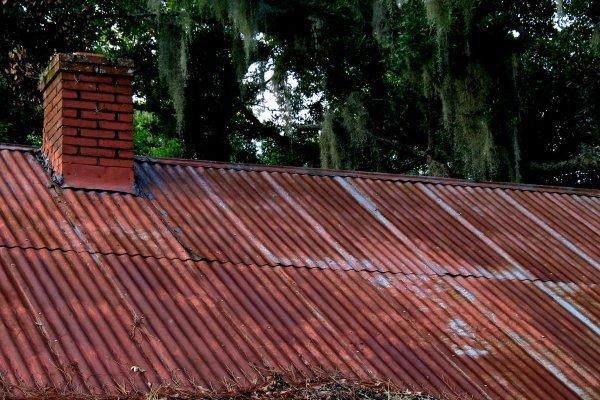When it comes to roofing materials, metal has gained immense popularity over the years. Homeowners are drawn to metal roofs for various reasons, including durability, energy efficiency, and aesthetic appeal. However, a common question that arises is, “Do metal roofs rust?” In this article, we’ll explore the myth and reality behind this concern.

Understanding Metal Roofing
Before delving into the topic of rust, it’s essential to understand the basics of metal roofing. Metal roofs are typically constructed using materials like steel, aluminum, zinc, or copper. These materials are known for their resilience and ability to withstand harsh weather conditions. Additionally, they are lightweight, making them an ideal choice for various architectural designs.
The Myth of Rust on Metal Roofs
One of the prevailing myths about metal roofs is that they are prone to rust. This misconception likely stems from the association between metals and rust, as some ferrous metals, like iron, are highly susceptible to corrosion. However, modern metal roofing materials are specifically designed to resist rusting.
Why Modern Metal Roofs Don’t Rust
- Coating and Finishes: Manufacturers apply protective coatings and finishes to metal roofing materials. These coatings act as barriers, shielding the metal from moisture and preventing rust formation. Common coatings include zinc, aluminum, or a combination of both, known as galvalume. These coatings provide excellent corrosion resistance.
- Quality Materials: High-quality metals, such as stainless steel and aluminum, are naturally resistant to rust. These materials are often used in roofing to ensure longevity and minimize any risk of corrosion.
- Proper Installation: The installation of a metal roof is crucial to its long-term performance. When installed correctly, a metal roof should have minimal gaps and seams, reducing the chances of water infiltration.
- Regular Maintenance: While metal roofs are low-maintenance compared to other roofing materials, it’s still advisable to perform routine inspections and cleaning. Removing debris and ensuring there are no damaged coatings can help extend the roof’s lifespan.
The Benefits of Metal Roofs
Besides rust resistance, metal roofs offer several other benefits that make them an attractive choice for homeowners:
- Longevity: Metal roofs can last 50 years or more with proper care, significantly outlasting many other roofing materials.
- Energy Efficiency: Metal reflects sunlight, reducing heat absorption and helping to keep your home cooler in hot weather. This can lead to lower energy bills.
- Durability: Metal roofs can withstand extreme weather conditions, including heavy snow, hail, high winds, and even fire.
- Environmentally Friendly: Metal roofing materials are often recyclable, making them an environmentally responsible choice.
Conclusion
In summary, the myth that metal roofs inevitably rust is far from the truth. Modern metal roofing materials are designed to resist rust and corrosion, ensuring the longevity and durability of your roof. When properly installed and maintained, a metal roof can provide your home with decades of reliable protection and energy efficiency. So, if you’re considering a metal roof for your next roofing project, rest assured that rust should not be a significant concern.



Leave a Reply